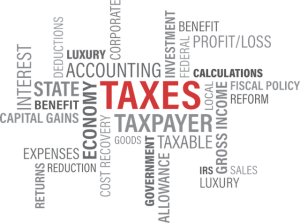 In recent years, Albania has become a very attractive destination for doing business, especially in the eyes of foreign investors. Not only thanks to the low cost of labor and extensive dissemination of foreign languages, but also thanks to a tax system “mild.”
In recent years, Albania has become a very attractive destination for doing business, especially in the eyes of foreign investors. Not only thanks to the low cost of labor and extensive dissemination of foreign languages, but also thanks to a tax system “mild.”
The Albanian tax legislation applicable to foreign entrepreneurs, is composed by international agreements ratified by the Albanian parliament by domestic tax law, and the related implementing regulations.
In particular, international agreements and the progressive bring Albania closer to the European Union have helped to make the Albanian legislation on tax, harmonized with EU principles.
On the technical side, the Albanian tax system is composed of two families:
- local taxes
- National taxes
Albanian local taxes
Taxes and local taxes are Albanian elements of the tax system managed by what is called the ‘local government’ ‘. These are mainly taxes related to property or to ‘use of buildings as places of business activities, infrastructure maintenance or various activities with local destination expertise.
According to Law n. 8652 of 31/01/2000 and subsequent amendments “On the organization and functioning of local government”, the local administrative structures have the right to decide for themselves on tax rates of such taxes and duties. Of course, always respecting the rules and boundaries set by national legislation sources. Within this group of taxes has a particular value, tax relating to any industrial or commercial buildings.

Taxes and Albanian national taxes
Taxes and national taxes are the primary form of revenue for the Albanian treasury, and are without a doubt the most significant fiscal pressure sources in the country. In particular, taxes and national taxes are as follows:
- The value-added tax;
- the tax on income;
- excise duty;
- Taxes on games of chance, on casinos and on racecourses;
- domestic taxes;
- other taxes and fees defined as such by specific laws.
In addition to these taxes that make up the Albanian tax system, are also obligations to social security institution which is governed by special rules. Let’s see, in detail, some aspects of interest.
a) The value-added tax
The value-added tax or, in his diminutive Albanian TVSH, is virtually the most “famous tax in Albania ”, and the word most uttered by taxpayers and not only when it comes to fiscal matters.
Thanks to Law 92/2014 of 24.07.2014 which has entirely changed the previous law n. 7928 of 27/04/1995, Albania today can boast of having a VAT legislation fully harmonized with EU principles.
The value added tax is applied on the sales of goods or provision of services by a taxable person in the territory of the Republic of Albania in the face of a payment and all modes of goods in Albania. Obviously, in accordance with EU principles of the tax, the VAT is not levied on exports and international services as the transport of goods and passengers and counseling or B2B activities. The Albanian VAT is applied with a standard rate of 20%.
As for taxable persons treated as such in the ends of the applicability of the VAT, they are required to register with the relevant authorities as taxpayers, for VAT purposes, all natural or legal persons:
- whose annual turnover exceeds the value of 5,000,000 all or about 36,232 euro;
- engaging in import-export activities, regardless of their annual turnover.
However, they can choose to be taxable persons, VAT purposes, also all economic entities with a turnover less than that mentioned above that present in the appropriate bodies the self-declaration and the request to be considered as such. In the case of loans maturing from the tax authorities in tax matters on the local legislation provides added value that the request for repayment by the taxpayer should be submitted only and when the amount of the credit has exceeded the value of 400,000 all. In this case the refund must be made within 60 days of submission of the request for taxpayers who perform only internal operations and within 30 days for taxpayers who carry out import-export operations.
b) The tax on income
Income tax is a tax that applies on all personal incomes of individuals or economic entities in accordance with the following definitions:
- taxable individuals, individuals or companies resident in the Republic of Albania;
- taxable persons, natural or legal persons not resident in the Republic of Albania for which, however, the conditions of residence for tax purposes.
The law 8438 of 23/04/1998 “The Tax on ” income and subsequently amended, states that are subject to this tax the income derived in the fiscal year from the following sources:
- compensation, salaries and other remuneration derived by an employee service;
- income from copyrights or any type of intellectual property;
- income from lease or rent with the exception of cases where such income is generated as part of business activities;
- income from the sale of real estate;
- income from the difference between the purchase price and sale price in the sales transactions of corporate equity investments in the form of shares;
- investment income, from investment activities and equity investments, such as dividends and capital gains; as well as income from bank interest and other financial instruments;
- other income.
In summary, the categories of income taxed in Albania, are divided into three classes macro:
A) Income from the labor activity is a subject of income impost of physical persons as employers and income tax in Albania.
In the wake of the International Monetary Fund, in recent years the tax on labor income in Albania has often been the subject of regulatory intervention. At the date of publication of this contribution applicable echelons, however, are as follows:
- from 0 to 30,000 monthly ALL, there is provided a rate of 0%;
- From 30,000 to 130,000 monthly income all, there is provided a rate of 13% of the amount exceeding 30,000 all;
- More than 130,000 all, there is a rate of 10% of the amount of 130,000 all more than 23% of the amount exceeding 130,000 all.
B) Income from business activities
At the date of publication of this article, the tax on business income brackets are as follows:
- 0 to 2,000,000 in revenue law applies the rate “0” (lighter regime micro and small enterprises);
- from 2,000,000 to 8,000,000 in revenue law applies a rate of 5%;
- Over the turnover of Law 8,000,000 applies a rate of 15%.
C) Other income established by law n. 8438/98
The other categories of income provided by the Albanian tax legislation, generally serving a withholding tax of 15%, borne by the enterprises and economic entities, which then take on the role of withholding agent.
Social contributions and social securities
Even in Albania, on labor income they are applicable social contributions and social securities. At the date of this contribution, the contribution burden on labor in Albania amounts to an overall 24.5% (social security contributions) of which 15% is borne by the employer and 9.5% by the employee and 3.4 % of social equally divided social securities with a load of 1.7% for each. It should be emphasized that social security contributions are calculated up to a contribution ceiling of 97,030 all. Instead the social securities is calculated based on the total gross pay.
